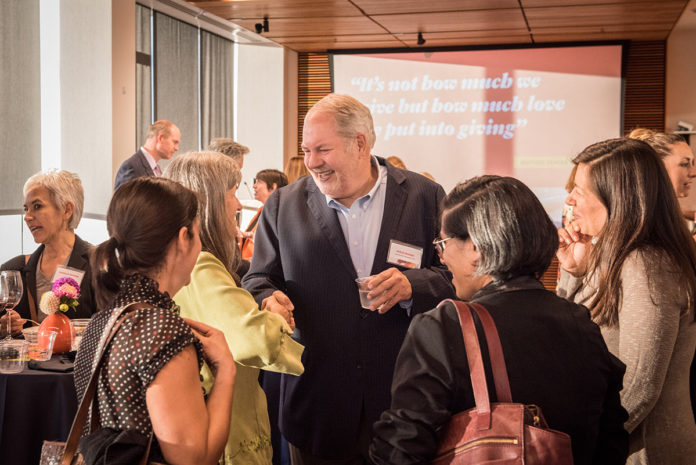Even though we have more than a year before ballots are cast, our nation is already in full campaign swing as we prepare for the 2020 elections.
Like many of you, I feel it is a responsibility of all citizens to remain informed on political issues and discourse directly impacting our community. We’ve all experienced how the early conversations in a campaign can shape the civic dialogue for months until ballots are counted and beyond. As I have watched the early coverage, listened to emerging candidates and read the reports, a common theme seems to emerge that is quite prevalent across politics: How can a candidate define themselves differently from the rest of the field?
Now, before I get too far into this piece, please allow me to state clearly that this column is in no way an endorsement or criticism of any one issue, candidate or party. We can likely all agree that we saw some behavior from individuals and parties in 2015/16 (and in many election cycles previously) that was less than admirable. Some would argue it is simply a part of modern American politics (and worldwide). When there is only one spot on the ticket and your fundamental backgrounds are so similar on key issues, such as the scale and role of government in shaping social, economic and foreign policy, candidates may feel compelled by consultants or pollsters to seek any opportunity possible to set themselves apart.
The unfortunate truth is, focusing on our differences is not the most effective way to lead. This is not the way we make communities, states or nations thrive. We need leaders and citizens to think and work to find ways we can come together.
Research has shown, and we have observed firsthand through granting more than $1 billion to nonprofits over 44 years serving the Pacific Northwest, that communities flourish when individuals across sectors come together to form unconventional collaborations. These partnerships occur when groups that otherwise would not cross paths – either because they differ on certain political ideologies or their work simply does not overlap day-to-day – are able to identify a common issue and work together on a solution serving the greater good.
Bestselling author and professor at the Harvard Kennedy School, Arthur Brooks, agrees, noting that “competition of ideas is what fosters the dynamism and creative thinking that leads us to improve outcomes in business, politics and even friendships.”
We see this in partnerships among nonprofits, government agencies, state, business and faith-based groups providing support to foster families. We see it when municipalities partner with technology firms and healthcare providers to bring modern diagnostic and treatment resources to rural communities. We see it when local governments, arts organizations, businesses and residents join forces to revitalize urban environments. Bringing all stakeholder voices to the table in the spirit of collaboration and not condemnation helps ensure outcomes that stick by serving a community’s broader needs.
But these results do not come quickly, nor easily. Often, the first conversations can feel awkward as some collaborators may have been at odds for an extended period or there may be a lack of understanding as to the perspective and experience of partner organizations. However, once the ball gets rolling, momentum comes strongly and naturally. And it is in this role where those in the philanthropic sector can and should take a greater leadership position in our community.
We are fortunate to have many incredible funders and conveners dedicated to serving the diverse needs of our local community, including the Kuni Foundation, the Community Foundation of SW Washington and the Native Arts and Cultures Foundation to name just a few. Like the Murdock Trust, many of these organizations take the role of convener – setting the table to bring partners together for productive discussion – seriously.
As funders, we don’t have the knowledge, skills or expertise to directly address all the unique challenges facing the communities we serve. It is also not our mission, nor are we trained, to help heal the sick, manage the facilities to shelter the homeless, possess the inspiration or talent to create works of beauty, inspiration and cultural significance. However, we do have the ability to help connect and bring those who do have these skills and resources together and amplify their work through investment and collaboration. But, like the research shows and experience teaches, we cannot do it alone. We need partners across sectors to join the discussion, focus on common ground and collaborate on solutions that serve the common good where it is needed most.
As we brace for the dose of patriotism that will surely come with the election cycle, let’s commit as leaders in every sector of our community to resist the pull to let our differences divide us as citizens. Instead, let’s double down on disagreeing where we must, but respecting, collaborating and working together at every opportunity to serve the common good.
Steve Moore is the executive director of the M.J. Murdock Charitable Trust. He can be reached at stevem@murdocktrust.org.





